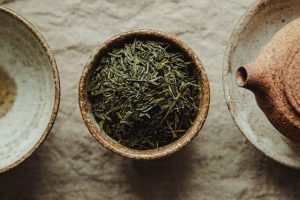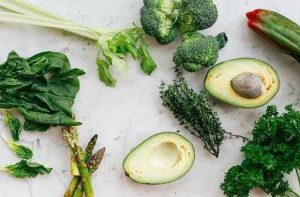Organic Wines For Clean Living

Many people in Australia and throughout the world have a concern with green living and eating clean. That includes adult beverages such as wines, for which many connoisseurs seek out organic types over the traditional standard.
There is a belief that these are much more environmentally friendly but, most importantly, better for wellness. Find myths on these wines at https://www.homebeautiful.com.au/myths-about-organic-wine/.
Most enthusiasts question (before tasting) how the natural process affects the essence of the substance as far as the quality, the character, and the taste. Seasoned drinkers are tuned in to how a good bottle should respond, and it’s curious if they can tell the difference between organic and non-organic.
Using the United States as an example, the USDA has a program designated as NOP, or National Organic Program, to maintain organic standards. Within this program, wines go in two classifications which ultimately determines labelling for the organic substances. In this way, clients can choose their ideal.
Categories For Organic Wines
The NOP designates organic wines into two classifications. In this way, those who are collectors have the capacity to choose which is a better fit for them. In either situation, more people turn to natural products to stick with a clean lifestyle and maintain an environmentally friendly living.
The demand is swiftly growing throughout the world with the prediction that this will continue to increase as producers strive to improve techniques allowing the potential for turning out a wine with rich flavour, depth, and character despite reducing the naturally occurring sulphites.
** Category: Organic
The components used for making the wine will need to have certification from the USDA as organic ingredients for use in the products, including the grapes for which the vineyard is responsible for growing organically.
Any agricultural product needs to have a certification. In contrast, non-agricultural items need a listing on the “allowed substances” protocol with the total capacity for these not exceeding 5% and nothing of a “prohibited” nature.
Organic wines can qualify under the 100% organic category but these need to have a certifying specialist name. There need to be none of the non-organic substances like nitrates or sulphites in a bottle of purely organic wine.
Within the grape’s skin, sulphites occur naturally, but if these accumulate to a level above ten ppm, it’s not feasible to receive a 100% USDA label. These actually are a source of stability for the wine when storing and also keep the flavour consistent. Producers are learning techniques to maintain consistency in every aspect without sulphites with more tremendous success in every attempt.
** Category: Use Of Organically-Grown Grapes
Grapes organically grown that have USDA certification as 100% organic is the next category. The expectation is that wines made in this classification must use only grapes that grow organically and have certification as organic from the USDA.
There is no requirement indicating that the other “agricultural” pieces be organic. Still, the producer needs to bottle the product in a facility certified as organic, and the label needs to indicate the agent who did the certifying. The resultant wine can contain sulphites added as (quote) “less than 100 parts per million.”
The Taste Of Organic VS Traditional Wines
Something you have to wonder, particularly if you’re a wine enthusiast, is how an organically produced bottle would compare in taste to that of a traditional substance. Connoisseurs who develop a taste have that anticipation. Still, the suggestion is that even those seasoned drinkers are unable to tell the difference between the two, except the organic is a bit better.
Claims from a 2016 study indicate that out of nearly 75,000 bottles; the organic tasted better. Researchers conducting the test studied the most prominent critic rating in popular wine magazines, coming to this ultimate conclusion. The organically developed products scorned nearly 5 points more than conventional options.
The speculated reason these taste tests resulted in the way they did is that the soil can flourish when it’s free of pesticides and contaminants, thus significantly benefiting the grapes’ overall flavour. Not only are there no pesticides, but herbicides or any other artificial or synthetic chemicals with the strict organically produced class. That allows you to enjoy the purity of the product.
Drinking Organically Contributes To Your Clean Lifestyle
More people are taking charge of overall wellness and self-care by engaging in a clean lifestyle. Part of that green living includes changing the foods and beverages put in the body.
Most individuals select whole natural or organic options over any processed or artificial substances, with some going entirely vegan to avoid any animal-based in their products. The idea is extending to include adult beverages for those who count themselves as wine connoisseurs or collectors. Go here to learn why these wines are better for you.
Fortunately, wineries are fine-tuning their production techniques offering enriched flavours, depth, and character while restricting the sulphites.
It is challenging because the sulphites are a natural-occurring (in the skin) key component in the grapes’ development, creating an intense flavour and allowing for the wine’s stability when storing. But in meeting the demand for 100% organic products, vineyards and wineries are attempting to comply with their offerings.
Ironically, while these are dissimilar from the traditional, the suggestion is these rated higher in studies in prominent wine magazines over the conventional varieties.
The only speculation is that the organic is a refined version with no contaminants allowing the soil to thrive.
Final Thought
The demand for organic wines is growing in the United States, Australia, and throughout the world. As more people catch on to the fact that the flavour is comparable, if not a touch better than your traditional wines, those who might have been hesitant will give it a try.
As people strive to become healthier and live cleaner, all industries attempt to find ways to contribute to their effort, and wineries are no exception. It’s the wine industry’s goal to present options to satisfy each person’s lifestyle.







